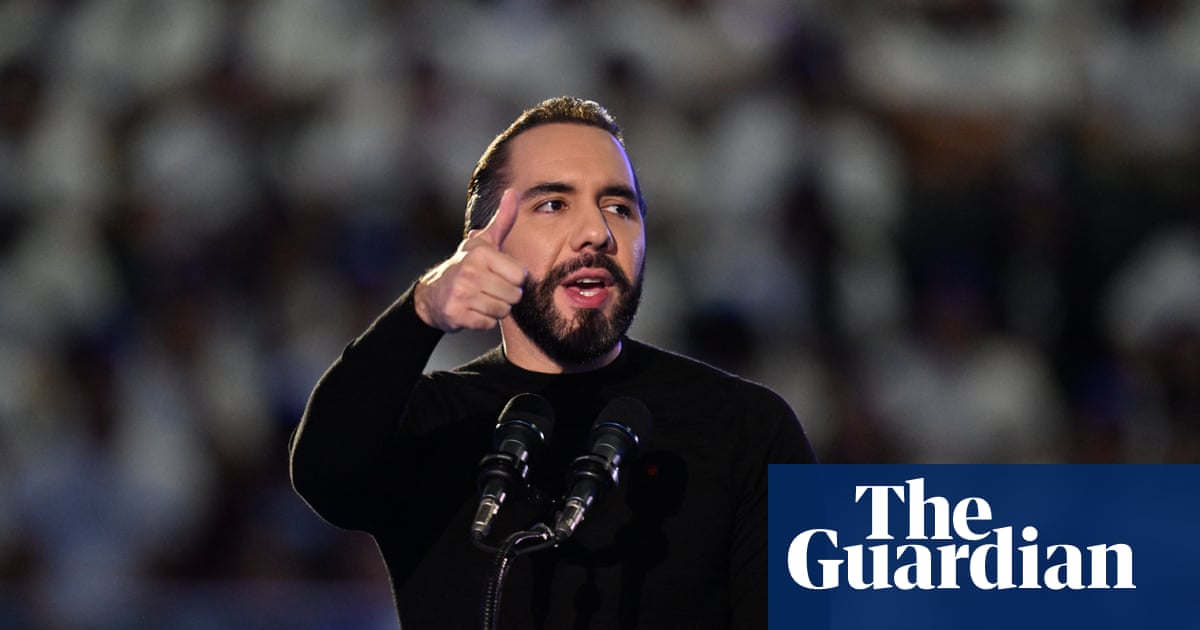The families of prisoners being held by the authoritarian governments ofEl SalvadorandVenezuelahave condemned President Nayib Bukele’soffer to swap 252 Venezuelan detainees sent to his jailsby theTrump administrationfor the same number of political prisoners incarcerated byNicolás Maduro’s regime.
Nelson Suárez, whose brother was among the Venezuelan immigrants sent from the US to a notorious maximum-security jail inEl Salvadorlast month, said he was desperate for the release of his brother, from whom he has heard nothing in five weeks.
But Suárez voiced outrage that his sibling – a 33-year-old musician who uses the stage nameSuarezVzla– had become a bargaining chip in a political game. “I feel they are treating my brother like merchandise … like political merchandise,” said Suárez.
Sebastián García Casique, whose 24-year-old brother Franciscowas also sent to the prison in El Salvador, also condemned the proposed trade. “Why are you using human beings in a negotiation as if they were toys?” he asked Bukele in a post on Instagram.
Relatives of the estimated 900 political prisoners who are incarcerated inVenezuelaalso questioned Bukele’s controversial offer, which the rightwing populist made on Sunday on the social network X, where he has more than 7.5 million followers.
In an open letter, the Committee for the Freedom of Political Prisoners in Venezuela said it wanted both political prisoners in Venezuela and innocent immigrants jailed in El Salvador to be freed. But the group said it did not support the “exploitation of the pain of victims for propaganda purposes in an effort to cover up injustices being committed against innocent Venezuelans, either inside or outside of the country”.
The committee opposed those incarcerated being “played with” or “used as a political resource to make invisible the inhumane conditions” in which prisoners were being detained in both countries.
Bukele repeated his offer on Tuesday after Maduro’s administration rejected what it called his “cynical” gambit, with Venezuela’s top prosecutorcallingEl Salvador’s president a “tyrannical” human trafficker.
Scores of Venezuelan immigrants have been deported to El Salvador since mid-March without due process, withDonald Trump’s officials accusing them of being dangerous terrorists and gang members. However, the administration has produced little evidence for those claims and many of the detainees – who were at least initially held in a maximum-security prison called the Terrorism Confinement Center (Cecot) –appear to have no criminal background. Their relatives insist they are innocent.
“First they were supposedly alleged terrorists – and now they are no longer terrorists, they’re part of a political exchange,” complained Suárez, who believed the Venezuelan migrants were being treated by Bukele “as if they were animals”.
Adelys Ferro, a Florida-based Venezuelan American activist who runs an advocacy group called the Venezuelan-American Caucus, said she also wanted freedom for both Venezuela’s political prisoners and the innocent immigrants being held in El Salvador.
Ferro slammed Bukele’s “painful and disgusting” political stunt. “What he’s trying to do – to negotiate innocent Venezuelans back and forth with the Maduro dictatorship – is despicable,” Ferro said.
“We cannot celebrate two authoritarians negotiating back and forth with Venezuelan lives.”
